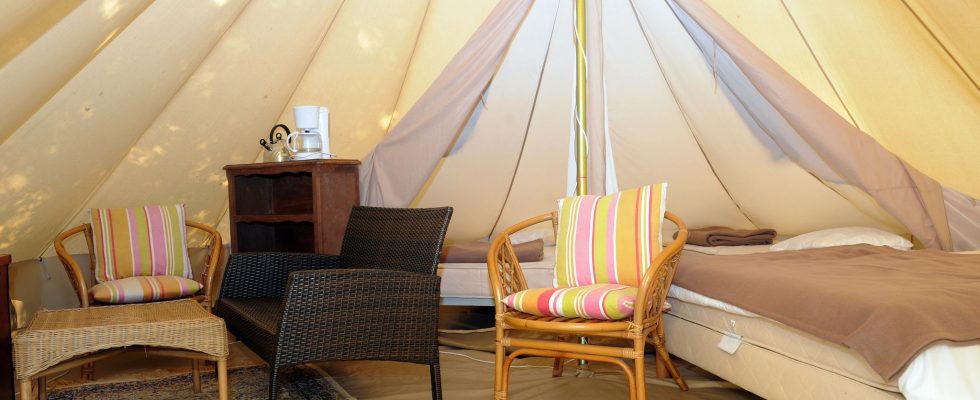Despite the prevailing gloom on the real estate market, there remain a few promising segments. We have identified four, in which it is possible to invest through a management company, however with a minimum ticket of 100,000 euros. To the real estate component is sometimes added another dimension, linked to the operation of the activity, housed in the acquired walls. The level of risk is therefore higher, as are the promises of return.
Campsites. The craze for outdoor hotels continues. “However, the offer is very fragmented with many family structures and the best locations are already taken,” notes Fabrice Lombardo, director of real estate activities at Swiss Life AM France. The sector is experiencing a move upmarket with customers looking for more comfort and services, as well as places that respect nature. To take advantage of this trend, the management company created the Plein Air Invest fund, which acquires campsites with high potential and develops them. Thanks to renovation work, but also by improving reservation systems and pooling costs, in order to increase the price of overnight stays, the occupancy rate and the extent of opening of the site. With a duration of seven years, the fund targets an annualized return of 10% net.
Residential. The Wenova Living fund, managed by the management company Wenova AM, invests in residential real estate and shared housing – co-living, shared accommodation, serviced housing -, with a minimum return objective of 7% net of fees, and a duration of six years. “Residential is a segment of real estate that is less financialized than offices or businesses, and which is essential in our everyday lives, which leads to less volatility in the valuation of properties,” underlines Jordan Parmast, president by Wenova AM. The strategy consists of targeting degraded properties at a good price, offering them a major energy renovation and repositioning them on the rental market, so that they increase in value. “Housing has changed very little over the last thirty years while with Covid, urbanization and demographics, household expectations have changed significantly,” notes Jordan Parmast. The manager focuses on dense and urban areas, subject to rental pressure, such as the inner suburbs of the Paris region.
Logistic. “With the explosion of home deliveries, the demand for warehouses is extremely strong, while the supply is restricted due to strict environmental constraints which prevent the construction of new spaces,” explains Lionel Ducrozant, development director of Eternam , real estate management company of the Cyrus group. Faced with this situation, prices, like rents, are rising. “In Europe, rents in logistics are growing by almost 10% per year,” continues Lionel Ducrozant. To benefit from this long-term trend, the manager has joined forces with the specialized group Herrmann Frères & Fils. They acquire tired assets, on the outskirts of large metropolises, to rehabilitate them and compensate for the lack of supply. This strategy, deployed within the H LOG 2 professional fund, targets an annual return of 8 to 10%.
Prestigious real estate. The multi-family office Laplace offers its clients the opportunity to invest in ultra-luxury properties, in partnership with the management company Mindston Capital. The objective? Buy off-market properties, with a value between 5 and 100 million euros, rework them with a renowned architect, furnish them, decorate them and even install works of art there, then resell them to a clientele international looking for a turnkey pied-à-terre, in Paris or in certain prestigious sites. “It’s a unique proposition in France,” underlines Bertrand Rabot, supply director at Laplace. “To obtain a sufficient margin on resale, you must succeed in acquiring the goods at a discount, and above all not skimp on quality. renovation because this clientele is extremely demanding.” On these operations, a net profitability of around 10 to 15% is expected.
.
